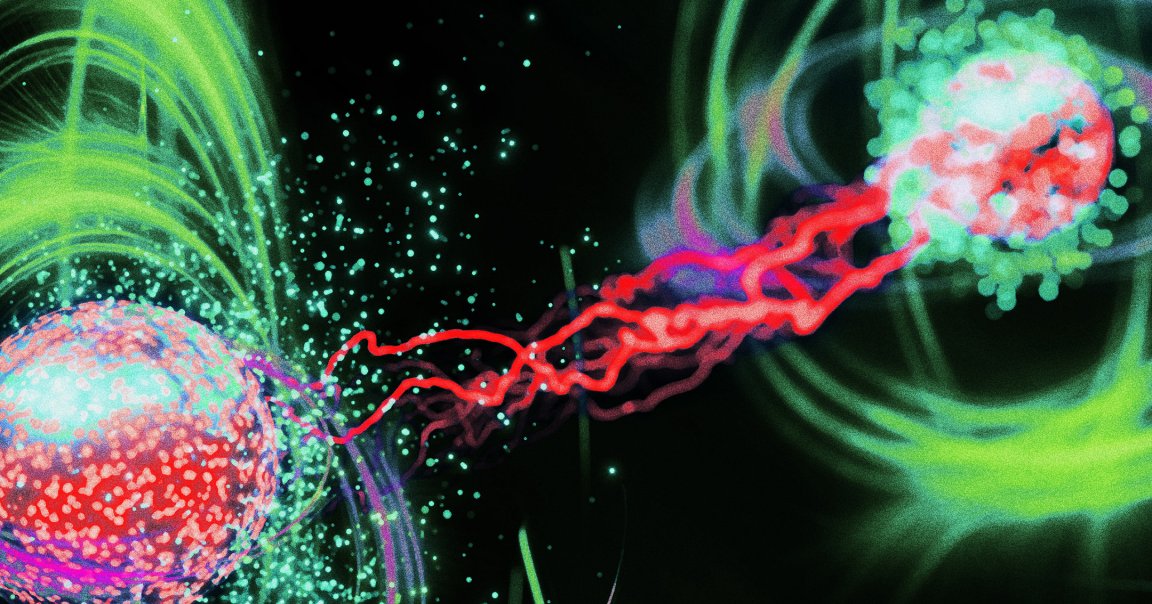
It’s one thing when a respected scientist has a novel idea of what dark matter or dark energy might be, or what could explain spooky quantum phenomena like entanglement and superpositions.
But the wonders of the internet has brought an entire economy built on outrage and conspiracy theories, enabling even the most crackpot grifters and fringe scientists to reach a wide audience and easily make a quick buck. We’ve all heard them rage against vaccines and seed oils, but one of their buzziest claims lately might surprise you: that theoretical physics are all lying to us, the Wall Street Journal reports.
Allegedly, theoretical physicists are corrupt and collude with each other to uphold groupthink. The lack of world–changing discoveries in recent decades, or a framework that reconciles quantum mechanics and classical physics, evinces an academic establishment that’s become enfeebled by its unwillingness to allow room for disagreement or to entertain more radical ideas.
It’s true that physics has become increasingly fixated on riddle-like ideas about string theory and invisible dark matter, and that certain observations about the universe are failing to match up with physicists’ predictions. Perhaps some portion of it is wrong; over the centuries, science has periodically thrown out widely-accepted ideas based on new evidence.
But the ideas peddled by proponents of the “physics is fake” theory, on closer inspection, sound absolutely ludicrous.
One of them, Eric Weinstein, went on Piers Morgan’s YouTube talk show in May to complain about academics ignoring his “Theory of Geometric Unity” that supposedly unifies all the forces of physics.
On the same show, though, John Hopkins physicist Sean Carroll pointed out why: in the paper, Weinstein admits right off the bat that his theory is “partially remembered and stitched together” from old notes and documents.
“It’s not serious,” Carroll excoriated. “It’s a dog-ate-my-homework kind of thing.”
Nonetheless, Weinstein — who popularized the term “intellectual dark web” — reaches a huge audience. After famously giving a lecture at Oxford half a decade ago, he now has over a million followers on Twitter and has repeatedly been a guest on Joe Rogan’s prominent podcast. He’s also a managing director at Thiel Capital, Peter Thiel’s VC firm.
His latest conspiracy theory, according to the WSJ, is that peer review was created by the government in collaboration with Ghislaine’s Maxwell’s father, and that her partner Jeffrey Epstein was directed by an intelligence agency to stop humans from exploring space.
A big part of Weinstein and the “intellectual dark web’s” shtick is acting like underdog mavericks rebelling against an oppressive but out-of-touch establishment. When Carroll swatted down his paper, an aghast Weinstein responded, per the WSJ: “How dare you. Your intellectually insulting aspect reminds me of you as the Marie Antoinette of theoretical physics influencers.”
But it seems another draw is that the disgruntled outsiders bring tabloid-style drama to a space that the public largely sees as sterile and official. Chris Williamson, who hosts the “Modern Wisdom” podcast that regularly features scientists, described it as “The Kardashians for physicists.”
Instead of hearing physics news trickled down to you by interviews and press releases, you now get to behold scientists — posers or actual, crank or orthodox — bellow at each other, if not directly then across a series of back-and-forth videos angrily reacting to their opponent’s angry reaction. “Anti-skeptic” YouTuber Professor Dave has nearly four million subscribers for making videos on these controversies, the WSJ noted.
It would be more amusing if this wasn’t coming at a time when science and scientific institutions are being demonized, more than ever, in mainstream, right-wing politics, with the material consequences of that coming to bear. Already the Trump administration has cancelled more than a billion dollars in grants at the National Science Foundation, and wants to slash its budget in half.
Those cuts, and others, have affected cancer research, vaccine research, and climate research, the latter becoming so villainized that initiatives which even contained the word “climate” are being stripped of their funds. The administration has also fired thousands at workers at scientific agencies like the Centers for Disease Control and Prevention and the National Oceanic and Atmospheric Administration. Even public darling NASA has lost over 2,000 employees to ruthless downsizing, with half its science budget on the chopping block and its Mars Sample Return mission set to be canned, too.
In all, that these anti-academics are gaining such a huge platform and have carved out a little economy for themselves is no accident — it reflects just how broken the public’s relationship with science is.
More on conspiracies: A Strange Conspiracy Theory Is Reportedly Spreading Inside OpenAI